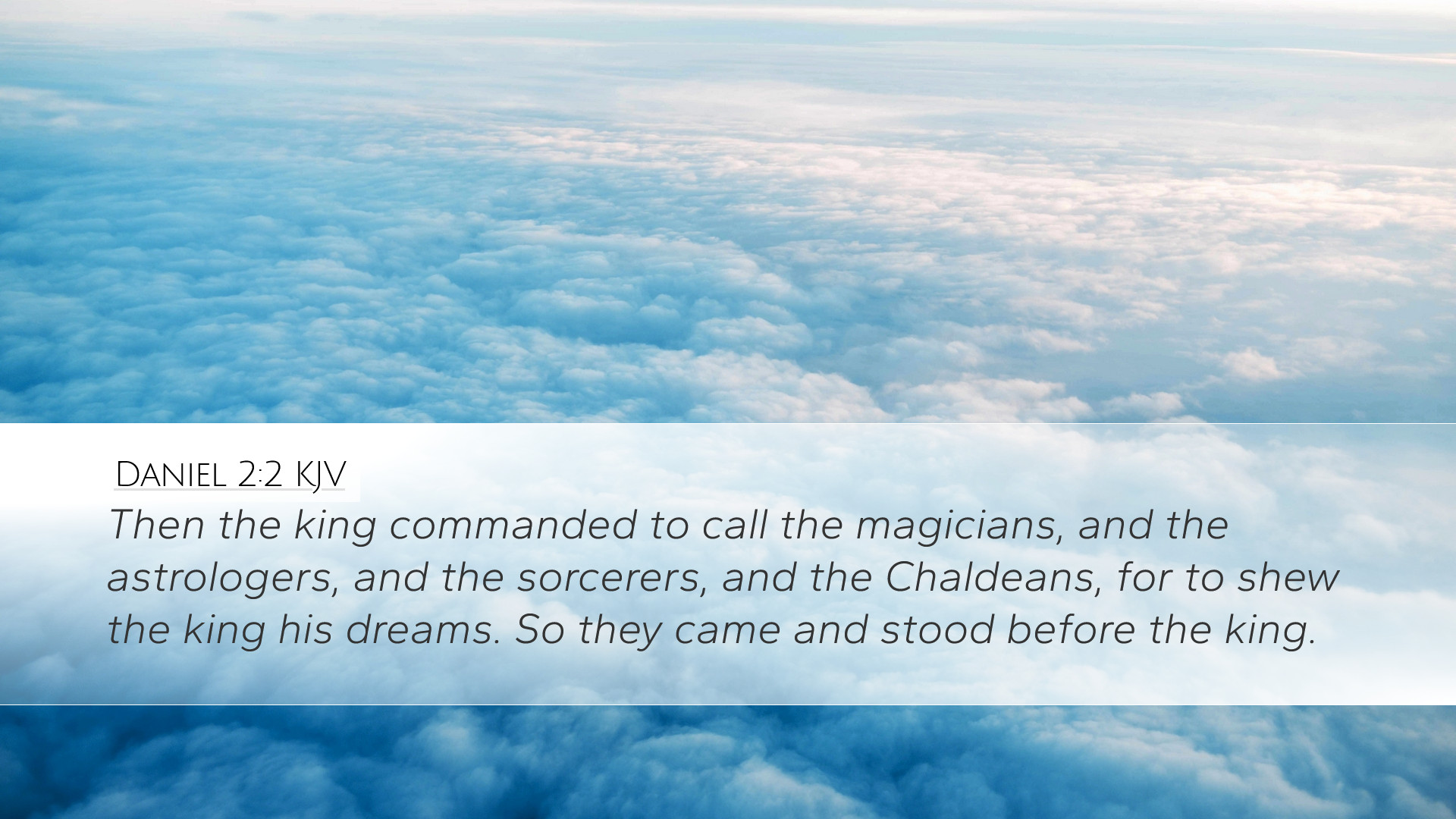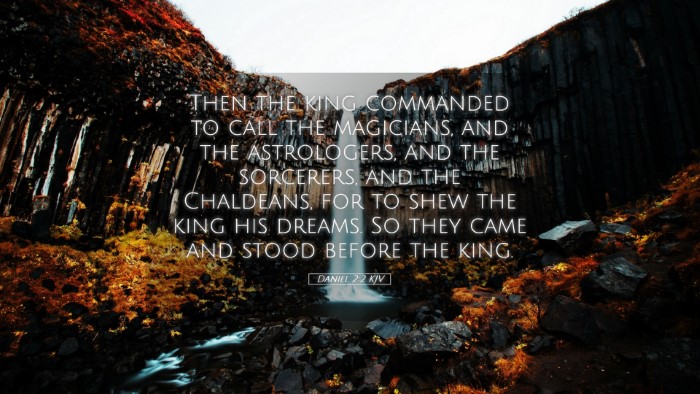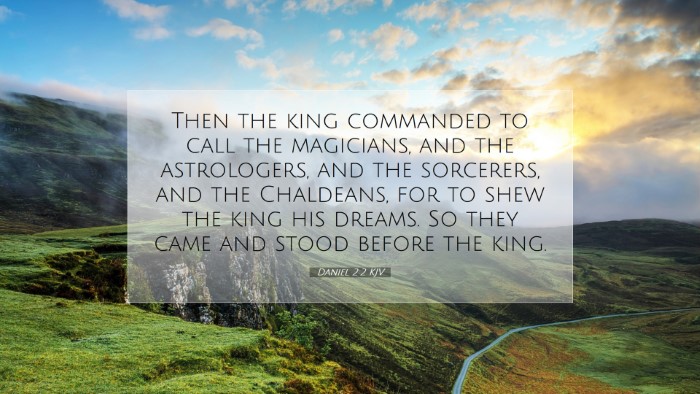Commentary on Daniel 2:2
Introduction
Daniel 2:2 reads: "Then the king commanded to call the magicians, and the astrologers, and the sorcerers, and the Chaldeans, for to show the king his dreams." This moment in the narrative sets the stage for the unfolding of God's sovereignty over earthly kingdoms and His revelation of truth through a faithful servant.
Context and Significance
This passage occurs within the narrative of Nebuchadnezzar's dream, which is pivotal for understanding the overarching message of the Book of Daniel. It emphasizes the contrast between human wisdom and divine revelation. The king’s desperation for insight reflects not only his anxiety but highlights the limitations of worldly wisdom.
Insights from Matthew Henry
Matthew Henry notes that the king’s command signifies the desperation that often accompanies authority when faced with uncertainty. Nebuchadnezzar, a powerful monarch, does not rely on his own judgment but seeks the wisdom of the learned men of Babylon. This is indicative of the human condition: even those in authority often feel inadequate in the face of the unknown.
- Human Limitations: Henry emphasizes that the king’s summons illustrates the limitations of human knowledge in dealing with the divine mysteries. Despite their titles and talents, the magicians and sorcerers ultimately fail to provide the answers the king seeks.
- The Search for Truth: The desire for understanding and truth is universal. Henry points out that the response to one’s dreams reflects a deep human instinct to seek meaning beyond oneself.
Insights from Albert Barnes
Albert Barnes provides a detailed examination of the roles played by the various groups summoned by Nebuchadnezzar. His analysis shows how each group represents different aspects of Babylonian wisdom.
- Magicians: These individuals employed various magical practices, reflecting the spiritual climate of Babylon. Barnes reminds readers that such practices were an abomination in the eyes of God.
- Astrologers: This group relied on the stars and celestial bodies to provide guidance. Barnes underlines the futility of astrology in understanding God’s will, emphasizing the belief that true wisdom comes from divine revelation.
- Sorcerers and Chaldeans: Both represented a combination of occult and intellectual approaches to the unknown. Barnes stresses that the very act of pulling together these groups suggests both a desperate need and a misplaced trust in human knowledge.
Insights from Adam Clarke
Adam Clarke brings attention to the procedural aspects of the king’s command, noting that this represents a calculated approach to addressing a profound issue. Clarke reflects on the psychological realm of Nebuchadnezzar, suggesting that his inability to recall his dream indicates a troubled mind.
- Psychological Turmoil: Clarke describes the state of mind of the king as one that weighs heavily on him, revealing that the uncertainty of his dreams signifies deeper existential fears.
- Call to the Wise: The gathering of the wise men illustrates the king's reliance on human reasoning, which Clarke suggests ultimately leads to disappointment when faced with divine mysteries.
Theological Reflections
The narrative emphasizes several theological themes that resonate throughout Scripture:
- God’s Sovereignty: The events of Daniel 2:2 are a precursor to God demonstrating His control over history and kingdoms.
- Human Inadequacy: The journey begins with a poignant reminder of human limitations and the necessity to defer to divine wisdom.
- Revelation: God’s revelation often comes in unexpected ways. The king’s experience foreshadows how God will reveal truth through Daniel, a servant, thus reinforcing the principle that divine wisdom is not bound to worldly authority.
Conclusion
Daniel 2:2 serves as a critical juncture in the narrative of Daniel. It showcases the contrast between human inquiry and divine enlightenment. The commentary from Matthew Henry, Albert Barnes, and Adam Clarke collectively encourages a deeper understanding of God’s providential unfolding in human affairs. As pastors, students, and theologians engage with this text, they are reminded of the frailty of human understanding and the unsearchable depths of God’s wisdom.


